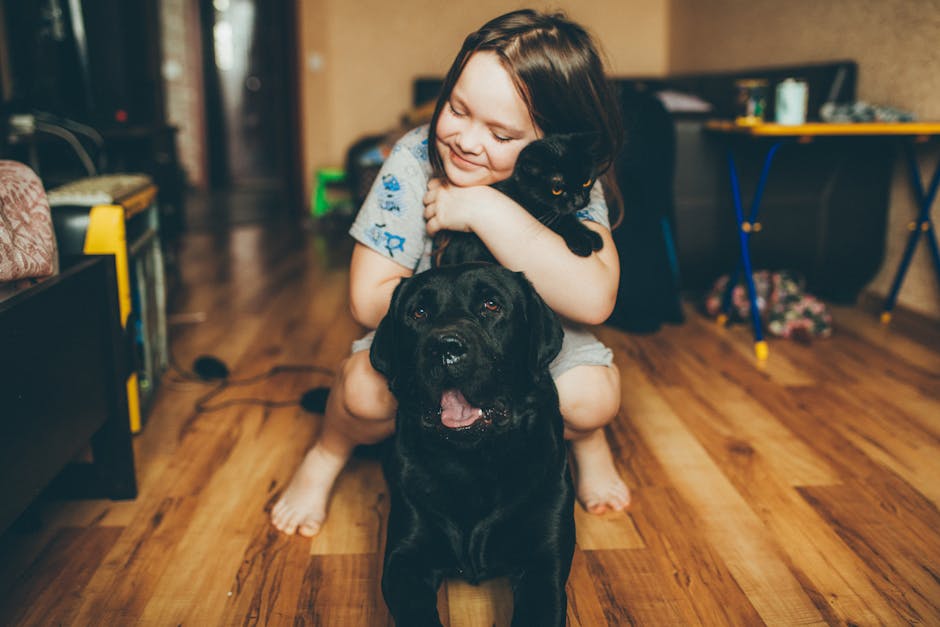The Amusing AI Mix-Up
In the era of smart homes and AI-powered assistants, technology has simplified our lives in countless ways. From controlling lights to playing music, devices like Google Home have become household staples. However, not all interactions are flawless, as one pet owner discovered in a humorous yet perplexing situation.
Meet Priya Sharma, a 32-year-old marketing professional from Bengaluru, whose Google Home device, powered by Gemini AI, repeatedly misidentifies her golden retriever, Bruno, as a cat. What began as a quirky glitch has turned into a recurring issue, leaving both Priya and Bruno bewildered.
How the Mix-Up Happened
Priya’s experience started when she used Google Home’s pet recognition feature to monitor Bruno’s activities. She hoped the AI would help track his eating habits, exercise routines, and detect unusual behavior. However, every time she asked Google Home to identify Bruno, the device confidently replied, “That looks like a cat.”
“At first, I thought it was a one-time glitch,” Priya shared. “But it’s happened multiple times now. Bruno is a golden retriever—fluffy, yes, but definitely not a cat. It’s like the AI has never seen a dog before!”
How Gemini AI Works
Gemini, Google’s advanced AI model, uses image recognition technology to classify objects, including animals. It analyzes visual data to identify patterns and categorize them into predefined labels like “dog” or “cat.” However, as Priya’s experience demonstrates, the system isn’t perfect.
Experts suggest that errors can occur due to factors like poor lighting, unusual angles, or the animal’s posture. In Bruno’s case, his long fur and certain facial features might be confusing the AI, leading to the misidentification.
A Growing Trend of AI Mishaps
Priya’s story isn’t unique. As AI technology becomes more integrated into daily life, users have reported various quirky and sometimes baffling errors. From voice assistants mishearing commands to facial recognition systems failing to distinguish between individuals, these glitches highlight the limitations of current AI systems.
“AI is incredibly powerful, but it’s still learning,” explains Dr. Ananya Rao, a computer scientist specializing in machine learning. “These systems are trained on vast datasets, but they can struggle with edge cases or scenarios that deviate from the norm. It’s a reminder that AI is a tool, not a perfect solution.”
The Importance of Human Oversight
While Priya finds the mix-up amusing, she also emphasizes the need for human oversight in AI systems. “It’s funny, but it also makes me wonder how reliable these technologies are in more critical situations,” she says. “If it can’t tell a dog from a cat, how can we trust it with more complex tasks?”
Despite the hiccups, Priya remains a fan of her Google Home device. “It’s still incredibly useful for so many things,” she adds. “I just hope they fix this issue soon. Bruno deserves to be recognized for the dog he is!”
Google’s Response
When contacted, a Google spokesperson acknowledged the issue and assured users that the company is continuously working to improve its AI models. “We appreciate user feedback and are committed to refining our technology to provide the best possible experience,” the spokesperson said.
The Takeaway
Priya’s experience is a lighthearted reminder of the quirks and challenges of AI technology. While these systems are becoming increasingly sophisticated, they’re not immune to errors. For now, Bruno will have to endure being mistaken for a cat, but with ongoing advancements in AI, there’s hope that future updates will get it right.
In the meantime, pet owners like Priya can take solace in knowing that even the smartest gadgets sometimes get it wrong—and that’s okay. After all, it’s the imperfections that make technology, and life, so interesting.
So, the next time your Google Home misidentifies your pet, just laugh it off. Even AI has its off days.
— Written for NextMinuteNews by Riya Kapoor




